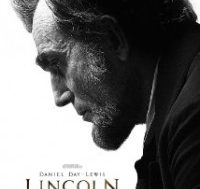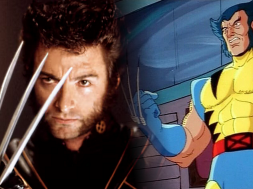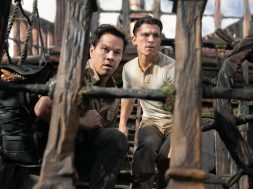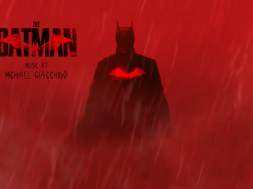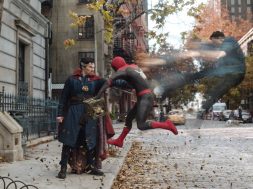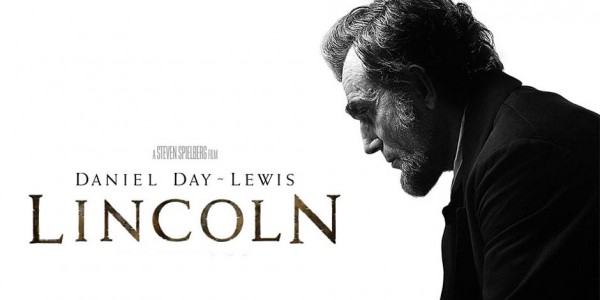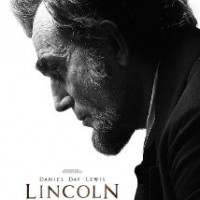
Director: Steven Spielberg
Writer: Tony Kushner
Cast: Daniel Day-Lewis, Sally Field, Tommy-Lee Jones, David Strathairn, James Spader, Joseph Gordon-Levitt.
It would be easy for a film that concerns itself with such lofty themes as freedom, power and iconography, and deals with the life and personal trials of a legendary political figure, to descend into worthy histrionics about those subjects. And it would be just as easy when reviewing such a film to do so with that same level of worthiness, driven by the gravity of its themes to avoid the issue of whether or not it’s actually an enjoyable movie. Thanks to a combination of engaging performances, some smart scripting and a rich production, no such avoidance is necessary. Politics hasn’t been this fun in a long time.
The genius is in the set-up; rather than focus either on Lincoln’s private or political travails in typical biopic hero worship fashion, the film places its main man as the shrewd lynchpin in a blackly funny political machine filled with grimy horse-trading and grass-roots corruption, then injects enough human drama and period philosophy into this situation to make for a potent recipe for the creation of one of history’s most celebrated figures.
S teven Spielberg, returning to something like top form after the likes Tin-Tin, and writer Tony Kushner, who belies his stage roots in a script filled with over the top period dialogue and delivery, fool us early on, placing Honest Abe in iconic pose (is he the only historical figure whose iconic pose is him sitting in a chair?) as he listens intently to Civil War soldiers both black and white recite the Gettysburg Address at him like starstruck proto-groupies, challenging him to make good on those famous words, before switching to a folksy, charming flag raising speech that signals the start of his second presidential term. No sooner is his lanky frame sat in the glorified gentleman’s living room of the Oval Office of the time, though, than we are shown that Abe might be a lot of things, but honest is not one of them.
teven Spielberg, returning to something like top form after the likes Tin-Tin, and writer Tony Kushner, who belies his stage roots in a script filled with over the top period dialogue and delivery, fool us early on, placing Honest Abe in iconic pose (is he the only historical figure whose iconic pose is him sitting in a chair?) as he listens intently to Civil War soldiers both black and white recite the Gettysburg Address at him like starstruck proto-groupies, challenging him to make good on those famous words, before switching to a folksy, charming flag raising speech that signals the start of his second presidential term. No sooner is his lanky frame sat in the glorified gentleman’s living room of the Oval Office of the time, though, than we are shown that Abe might be a lot of things, but honest is not one of them.
From here, Spielberg plays the picture more like a heist movie than a political drama, as Lincoln and his harangued VP (David Strathairn, never better) wheedle, scrounge and bribe their way towards stealing the political and personal fortune of slavery’s abolishment, aided by a crew of wildly differing characters whose actions and words – often the same thing in the context of the film – could send the whole corrupt construction tumbling down. Call it Abraham’s Eleven.
There’s tremendous fun to be had watching the scheme unfold, as the actions of a trio of grubby vote-scroungers hired by Lincoln (and led by James Spader in a hilarious, unscrupulous turn) and curmudgeonly yet vital radical representative Thaddeus Stevens (Tommy-Lee Jones playing a bludgeoning wall of rhetoric to perfection) combine and intertwine to help the Republicans – yes, those Republicans – swing the vote and realise a seemingly impossible ideal of freedom against all odds, as emphasised by a pair of white citizens early in the first act. The whole subterfuge is played out in a belligerent circus of half-truths and false propriety, a vicious cousin to the mud-slinging of today’s political arenas that provides moments of seriousness and farce in quick succession and lends the film and its themes a living, breathing tangibility that audiences will doubtless engage with. But there is no doubt that through it all it’s Lincoln who’s the ringmaster. He even has the hat.
Had the character of the president been the typical idealist or genial hero that he is often held up as, this film would have fallen flat on its face, but Kushner’s words and Daniel Day-Lewis’ magnetic portrayal peel back the nostalgia and create an eminently watchable complication of a man who isn’t the least bit afraid to climb into the gutter in order to reach the stars, even if doing so means sacrificing millions of lives in a bloody civil war.

Day-Lewis draws the eye of the viewer to his Lincoln with a combination of physical tics and homely fatigued, charm, then invites them underneath these outer layers to see the wheels that turn there. While his character affects an awe-shucks air by recounting from a seemingly bottomless supply of yarns, which leads to a funny moment with Bruce McGill’s gruff Secretary Of War, Day-Lewis’ eyes and posture expose it for the smoke-screen it is. You can almost feel him thinking ten steps ahead of everyone else. He rightly makes the decision to avoid the temptation to bellow and bluster, opting for a reedy croaking voice that makes his delivery of lines like “I am the President Of The United States, clothed in immense power!” somehow more real, and much more revealing of the relentless stoic drive that the character brings to bear. It’s a powerhouse performance, but one that is contained and channeled for maximum effect, tying the film together and filling it with meaning.
It’s a coup for all involved that the character, the majority of performances and the main plot are as strong as they are since, much like the Democrats trouble the Republican party in the story, other forces work against the film to try and stop it in its tracks.
First and foremost, it’s far too long, suffering under the weight of too many characters – the cast list at the top of this article barely scratches the surface in terms of name actors – bloating the otherwise lean and efficient intrigue of the main plot. Spielberg seems content to allow unnecessary flab to intrude on the film, with far too many scenes involving Sally Field’s forehead-clutching caricature of Mrs. Lincoln lamenting her depression over the loss of her son a prime example. Kushner’s stage-y style translates poorly to the screen in much of these scenes, marring the dramatic impact of Lincoln’s family woes and turning what was seemingly intended to be a character of grounding influence on the beleaguered president into a one-note irritating uber-nag.
The director also makes a big mistake by addressing Lincoln’s death in a heavy-handed coda (watch out for the “character caught in a flame” fade at the end) that feels tacked-on and comes well after the film’s natural stopping-point. We all know what became of Abraham Lincoln, and there is no need to go into it again. But Spielberg, or more likely the film’s producers, seem to fear that the warts-and-all portrayal of the man and his politics up to this point will somehow rob him of his legacy, and we get an ending which drags things out and weakens the climax.
But none of these problems is enough to derail the picture, and the strength of its message is held as true as its protagonist holds it throughout; the system is flawed, but even a flawed system can be used to make something great, if you know how to manipulate it.
Unless you REALLY hate politics and period costumes, go see this film.
8/10 Stovepipe Hats
